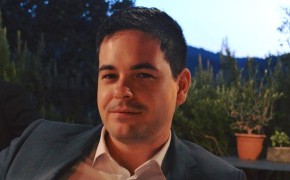A living-lab aiming to „give energy” to vulnerable households through provision of energy saving devices and building sophisticated knowledge
Bulgaria remains the most affected EU country in terms of energy poverty, as 30,1 % of the population (approx. 2,080,000 people) in 2019 struggled to keep their home adequately warm. All major factors escalating energy poverty are present– large share of the population living below the poverty line, low incomes in general and poor energy efficiency of the dwellings and the heating system, etc.
The current practise, established by the Energy Agency of Plovdiv and Schneider Electric Bulgaria focused on two main aspects of the issue - lack of sophisticated knowledge and the absence of wide-spread comprehensible energy services through creation and implementation of a local living lab to help energy poor households.
The living-lab implemented a total of 3 capacity’ building campaigns in 2016, 2017 and 2018 and thus delivered sophisticated knowledge and set of energy saving devices to vulnerable households. To do so, students from the Vocational School of Electronics in Plovdiv were engaged to take part in a specific training programme, which built better energy skills among them and teached them on how to become energy advisors of low-income households.
All 3 campaigns improved knowledge and influenced more sustainable energy behaviour of the participating households. This resulted to decreased energy bills of households. The living-lab also helped local communities to develop, implement and sustain their own solutions to the energy poverty problem.
Resources needed
- 50€ per household in form of energy saving devices
- 2500 – 5000€ to coordinate the campaign
- 10 Volunteering students to become energy advisors
- Av. cost for1 campaign for 50 households – 5000 - 7500€
- All described campaigns were privately funded by Schneider Electric Bulgaria
Evidence of success
A total of 3 campaigns were organized leading to a total of:
• 10 students from the Vocational School of Electrical Engineering and Electronics and other 20 volunteers completing training on energy advising;
• 130 households receiving professional advice and various energy-saving gadgets;
• 130 households were supplied with a guidebook on how to save energy and be energy efficient;
Some additional side visits to RES facilities were completed for volunteering students.
Difficulties encountered
Lack of culture of trust and difficulties in engagement and empowerment of the vulnerable groups is one of the key challenges. Thus, any coordinator should rely also on the external help of charity organisations, such as Caritas and Red Cross, to act as door openers to the low-income hoseholds.
Potential for learning or transfer
The described campaigns are transfering experience derived from the sucess stories developed within two IEE funded projects – Achieve and Reach.
In general, citizens empowemrent through advice, leading to behaviour change and to improved knowledge on sustainable use of energy and RES, is highly beneficial. Especially, when the most vulnerable part of the sociaty are targetted, such as the households relying on social aid for heating, using social protection measures to secure their electricity supply, utilizing low-quality fuels or living in inefficient building stock.
The project contributed to additional benefits for the volunteering students engaged in campaigning. It built better energy and communication skills and provided them with improved understanding on how to efficiently consume energy and water at home. This makes this type of measure transferable among different countries and regions. Finally, similar collaboration improves access to relevant assistance organisations.
Please login to see the expert opinion of this good practice.
Tags: Empowerment, Energy, Poverty, Volunteering








